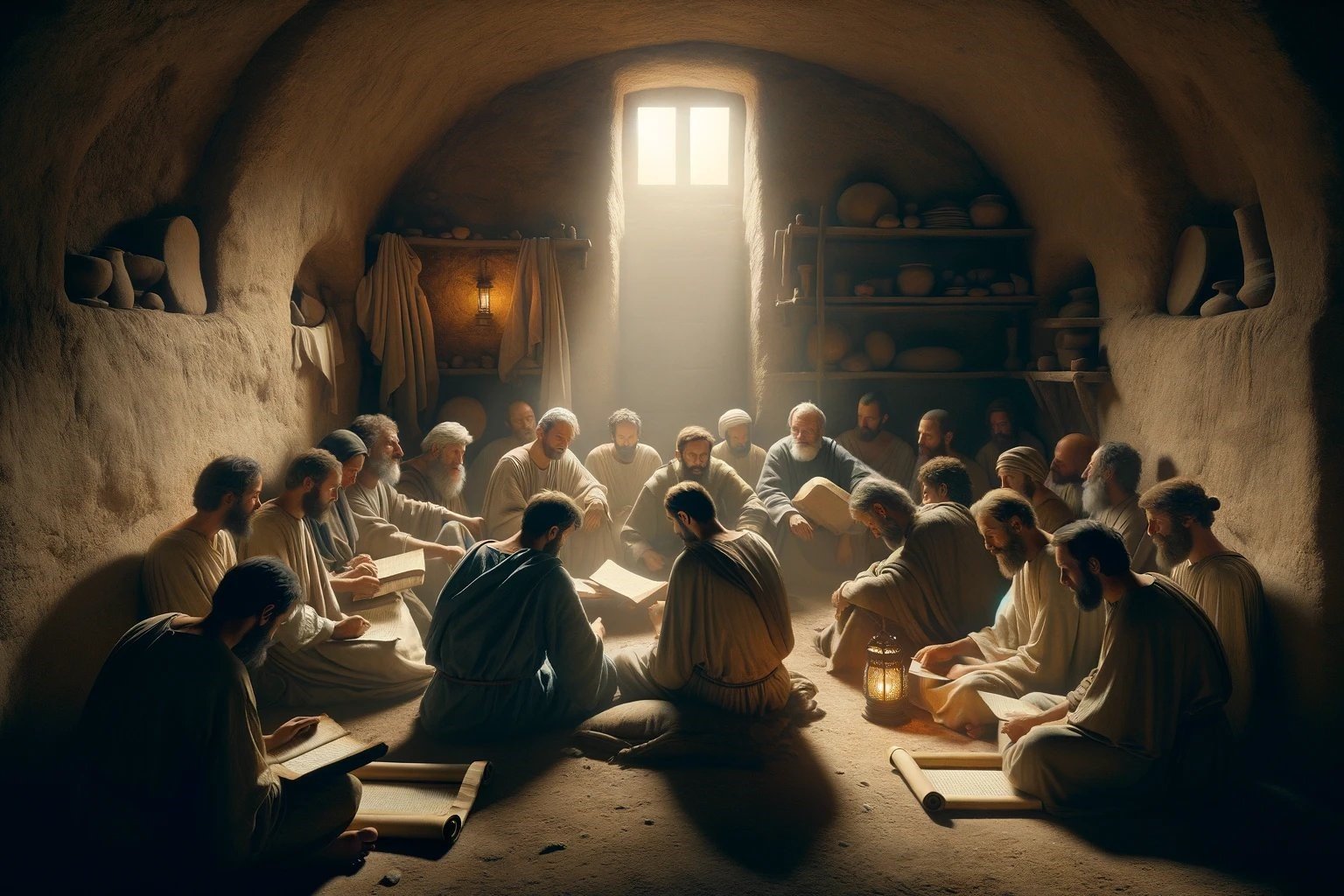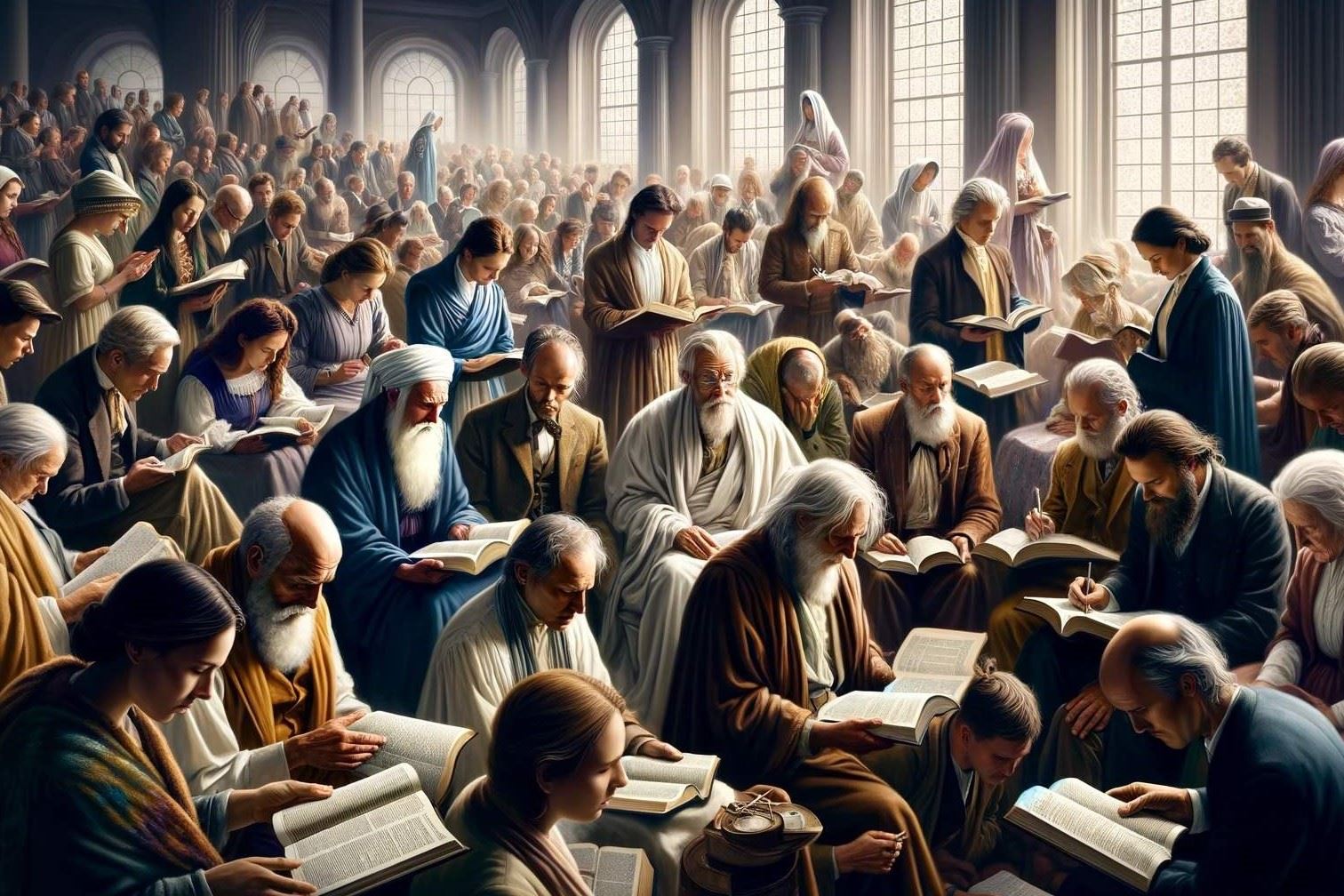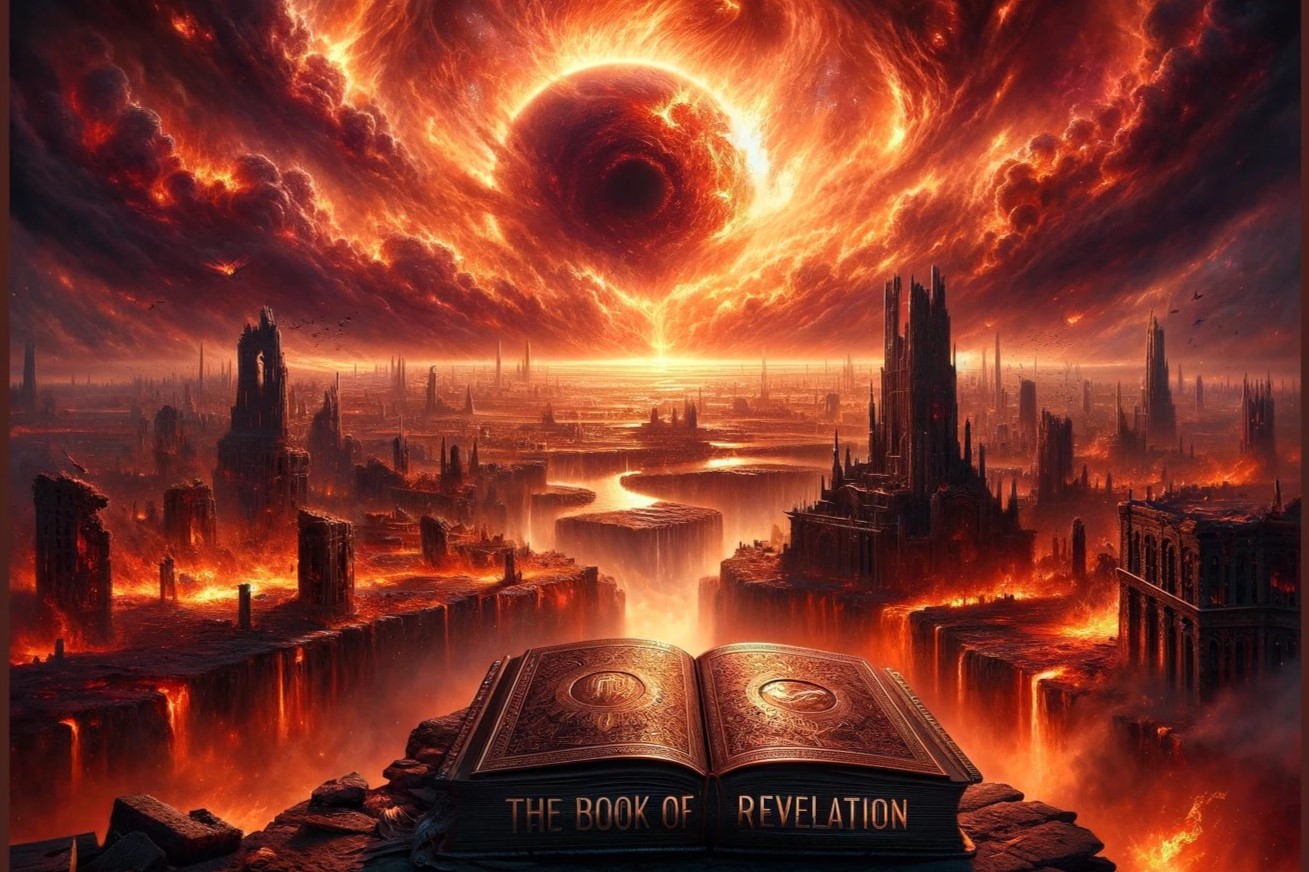Home>Bible Facts>When Was Book Of Revelation Written


Bible Facts
When Was Book Of Revelation Written
Published: February 11, 2024
Jason DeRose, Managing Editor at Christian.net, uses his expertise in religion and journalism to deepen understanding of faith's societal impacts. His editorial leadership, coupled with a strong academic background, enriches the platform’s diverse content, earning him recognition in both journalism and religious circles.
Discover the truth about the authorship and dating of the Book of Revelation in the Bible. Uncover fascinating Bible facts about its origins and historical context.
(Many of the links in this article redirect to a specific reviewed product. Your purchase of these products through affiliate links helps to generate commission for Christian.net, at no extra cost. Learn more)
Table of Contents
Introduction
The Book of Revelation, also known as the Apocalypse of John, is a captivating and enigmatic text that has intrigued scholars and believers for centuries. This final book of the New Testament offers a unique blend of apocalyptic visions, profound symbolism, and powerful messages of hope and redemption. Its authorship, date of writing, and historical context are subjects of intense scholarly debate, adding to the mystique surrounding this profound work.
The Book of Revelation is a literary masterpiece that transcends time and space, offering readers a glimpse into the cosmic battle between good and evil, the ultimate triumph of righteousness, and the promise of a new heaven and earth. Its vivid imagery and vivid descriptions of heavenly realms, celestial beings, and divine judgments have inspired awe and wonder in countless individuals throughout history.
As we delve into the authorship, date of writing, and historical context of the Book of Revelation, we embark on a journey to unravel the mysteries and significance of this extraordinary biblical text. Through careful examination and thoughtful reflection, we can gain a deeper understanding of the profound truths and timeless relevance encapsulated within its verses. Join me as we explore the origins and enduring impact of the Book of Revelation, shedding light on its profound significance for believers and scholars alike.
Read more: Who Was The Book Of Revelation Written For?
The Authorship of the Book of Revelation
The authorship of the Book of Revelation has been a subject of scholarly debate for centuries. Traditionally, the text has been attributed to John the Apostle, also known as John the Evangelist, who is believed to have authored the Gospel of John and the epistles of John. However, the precise identity of the author of Revelation remains a point of contention among biblical scholars.
The text itself identifies the author as "John," who describes receiving the apocalyptic visions while exiled on the island of Patmos. Early Christian tradition ascribes this John to be the same individual as the beloved disciple of Jesus. However, some scholars argue that the writing style and theological themes in Revelation differ significantly from the Gospel of John and the Johannine epistles, suggesting the possibility of a different author.
Some scholars propose that the author of Revelation may have been a different figure known as John the Elder, who was a prominent leader in the early Christian community. This theory posits that the authorship of Revelation may have been attributed to the revered Apostle John at a later stage to lend authority to the text.
Another perspective suggests that the author of Revelation could have been a different individual altogether, possibly a prophet or visionary within the early Christian movement. This viewpoint emphasizes the symbolic and visionary nature of the text, leading to speculation about the identity of the author and the historical context in which the book was composed.
Despite the ongoing scholarly discourse surrounding the authorship of Revelation, the text's profound theological insights, vivid imagery, and enduring impact continue to captivate readers and inspire contemplation. Whether penned by the Apostle John, John the Elder, or another visionary figure, the Book of Revelation stands as a testament to the enduring power of apocalyptic literature and its significance within the broader biblical canon.
The authorship of the Book of Revelation remains an intriguing enigma, inviting readers to explore the complexities of its origins and the profound messages it conveys. As we continue our exploration of this remarkable biblical text, we will delve further into the date of its writing and the historical context in which it emerged, shedding light on the enduring relevance of Revelation for contemporary readers and scholars.
The Date of Writing
The dating of the Book of Revelation is a subject of considerable scholarly debate, with various theories and perspectives contributing to the complexity of determining its precise composition date. The traditional view holds that the book was written near the end of the first century, specifically during the reign of the Roman Emperor Domitian, around 81-96 AD. This timeframe aligns with historical accounts that describe a period of intense persecution against Christians under Domitian's rule, providing a historical backdrop for the apocalyptic themes and messages of endurance and hope found within Revelation.
However, alternative theories propose an earlier date for the composition of Revelation, placing it within the mid-60s AD, during the reign of Emperor Nero. Advocates of this viewpoint point to internal textual clues, historical context, and theological themes within the book to support the argument for an earlier writing date. They highlight the references to the seven churches in Asia Minor, the impending persecution of believers, and the symbolism of the beast and the number 666 as elements that reflect the socio-political climate of the mid-60s AD.
Furthermore, some scholars suggest that the Book of Revelation may have undergone a process of redaction and editing over time, incorporating earlier traditions and visions into its final form. This perspective acknowledges the possibility of multiple authorial layers and the influence of diverse historical contexts on the shaping of the text.
The debate over the date of writing for the Book of Revelation underscores the intricate interplay between historical context, textual analysis, and theological interpretation. While the traditional late-first-century dating aligns with certain historical accounts and thematic elements within the book, alternative perspectives offer compelling arguments for an earlier composition date, inviting readers to consider the diverse factors that contribute to the complex tapestry of Revelation's origins.
As we navigate the complexities of dating the Book of Revelation, it becomes evident that the text's enduring significance transcends specific historical timelines, inviting readers to engage with its profound messages of faith, perseverance, and divine sovereignty. The date of writing, whether situated in the reign of Domitian or Nero, serves as a point of entry into the rich tapestry of Revelation's timeless relevance and enduring impact on readers across centuries.
Historical Context
The historical context in which the Book of Revelation emerged is a crucial aspect of understanding its profound significance and enduring impact. Situated within the tumultuous socio-political landscape of the first century, the text reflects the experiences and challenges faced by early Christian communities under Roman rule. The prevailing conditions of persecution, political upheaval, and religious tensions shaped the apocalyptic visions and messages of hope articulated within Revelation.
During the late first century, the Roman Empire exerted its dominance over the Mediterranean world, imposing imperial cult worship and demanding allegiance to the emperor as a divine figure. This posed a significant challenge to early Christians, who refused to participate in idolatrous practices and faced persecution as a result. The Book of Revelation addresses this conflict directly, portraying the cosmic struggle between the forces of good and evil, with the ultimate victory belonging to God and His faithful followers.
The seven churches in Asia Minor, to whom the book is addressed, grappled with the pressures of assimilating into Roman society while maintaining their distinct Christian identity. The symbolic language and vivid imagery employed in Revelation served as a source of encouragement and reassurance for these communities, offering a vision of divine justice, restoration, and the ultimate triumph of God's kingdom over the oppressive powers of the world.
Furthermore, the historical context of intense persecution and social upheaval under Emperor Domitian's reign provided a backdrop for the apocalyptic themes and messages of endurance found within Revelation. The book's portrayal of the Lamb's victory over the dragon, the new heaven and earth, and the ultimate defeat of evil resonated deeply with believers facing adversity and uncertainty.
The historical context of the Book of Revelation illuminates the profound resilience and faith of early Christian communities amidst formidable challenges. By embracing the apocalyptic visions and messages of hope within the text, these communities found strength and perseverance in the face of persecution and societal pressures. The enduring relevance of Revelation's historical context invites contemporary readers to reflect on the timeless themes of faith, endurance, and divine sovereignty, resonating across centuries and offering profound insights into the human experience.
As we delve into the historical context of the Book of Revelation, we gain a deeper appreciation for the enduring relevance of its messages and the profound impact it continues to exert on readers and scholars alike. The socio-political dynamics, religious tensions, and experiences of early Christian communities form the backdrop against which the apocalyptic visions and theological themes of Revelation unfold, inviting us to contemplate the enduring significance of this remarkable biblical text.
Conclusion
In conclusion, the Book of Revelation stands as a testament to the enduring power of apocalyptic literature and its profound significance within the biblical canon. The authorship of Revelation, whether attributed to the Apostle John, John the Elder, or another visionary figure, invites readers to explore the complexities of its origins and the profound messages it conveys. The ongoing scholarly discourse surrounding the authorship of Revelation underscores the enigmatic nature of this extraordinary text, captivating readers and scholars alike with its vivid imagery and theological depth.
The debate over the date of writing for the Book of Revelation highlights the intricate interplay between historical context, textual analysis, and theological interpretation. Whether situated in the reign of Domitian or Nero, the date of writing serves as a point of entry into the rich tapestry of Revelation's timeless relevance and enduring impact on readers across centuries. The diverse perspectives on the composition date offer compelling insights into the multifaceted nature of Revelation and its ability to transcend specific historical timelines, inviting readers to engage with its profound messages of faith, perseverance, and divine sovereignty.
The historical context of the Book of Revelation illuminates the profound resilience and faith of early Christian communities amidst formidable challenges. The socio-political dynamics, religious tensions, and experiences of these communities form the backdrop against which the apocalyptic visions and theological themes of Revelation unfold, inviting us to contemplate the enduring significance of this remarkable biblical text. The enduring relevance of Revelation's historical context resonates across centuries, offering profound insights into the human experience and the enduring struggle for faith and perseverance in the face of adversity.
As we conclude our exploration of the Book of Revelation, we are reminded of its timeless relevance and enduring impact on believers and scholars throughout history. The profound messages of hope, divine justice, and the ultimate triumph of righteousness continue to inspire awe and contemplation, inviting readers to delve into the depths of its apocalyptic visions and embrace the enduring truths encapsulated within its verses. The Book of Revelation remains a source of profound inspiration, offering a glimpse into the cosmic battle between good and evil and the promise of a new heaven and earth, transcending time and space to speak to the hearts and minds of all who seek wisdom and understanding.















